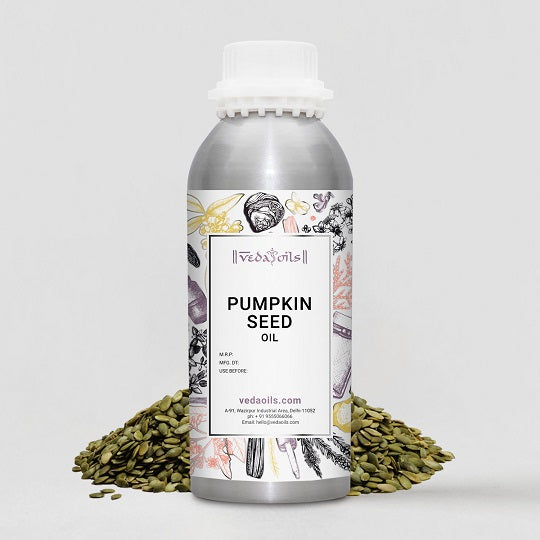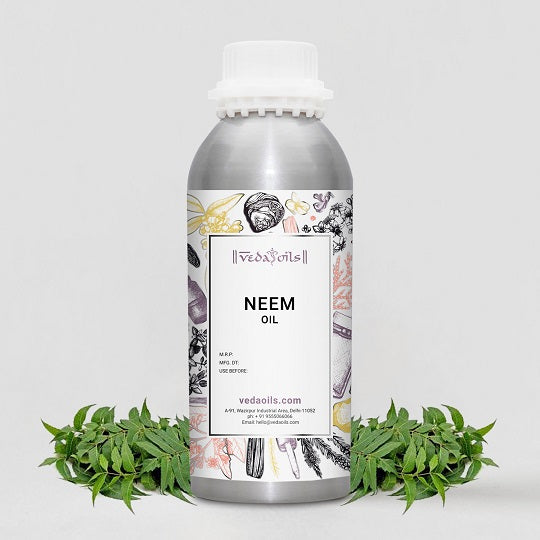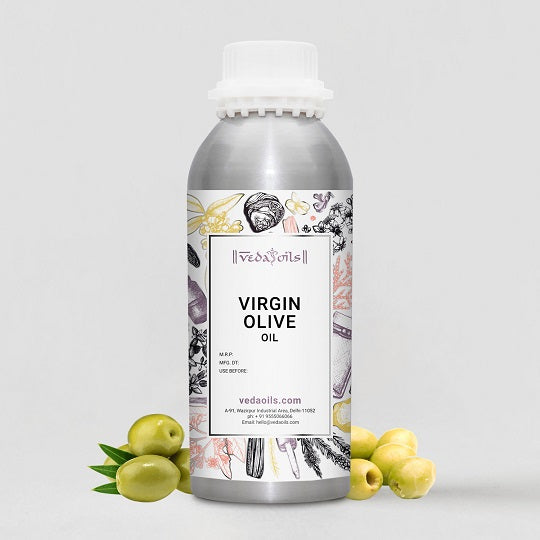Parasites are unwelcome intruders, disrupting our lives and negatively impacting our health. While conventional medicines promise to combat parasitic infections, individuals are turning towards natural alternatives such as essential oils to address this concern due to not-so-good results. Today, in this blog, we will explore the essential oils for parasites.

These microscopic organisms range from worms to protozoa that invade our bodies and cause a variety of symptoms and discomfort. When it comes to parasitic infections, certain essential oils have shown promise in their ability to repel and inhibit or sometimes even eradicate these unwanted guests. We will discuss different types of essential oils for parasites, and they help our well-being.
Top 12 Essential Oils That Kill Parasites
You might not know, but essential oils can be a valuable addition to your parasite-fighting toolkit; it's important to note that they should not be used as a substitute for medical advice. So, now let’s discuss the top 12 essential oils for parasites.
1. Oregano Essential Oil For Parasites
The oregano plant's leaves make oregano essential oil, known for its effective anti-parasitic qualities. This essential oil, rich in substances like carvacrol and thymol, has potent antibacterial activity against various parasites, including intestinal worms and protozoa.
Oregano essential oils' capacity to damage parasite cell membranes can aid in preventing their development and replication. But because this essential oil is so concentrated, it must be appropriately diluted and used under supervision to prevent skin irritation or allergic reactions.
2. Peppermint Essential Oil For Parasites
Parasites can be fought off with peppermint essential oil obtained from the peppermint plant. Menthol, which has potent antibacterial and antiparasitic properties, is included in it. Ticks, lice, and intestinal worms are just a few parasites that this essential oil has proven effective against.
By acting as a natural repellant, its potent aroma prevents parasites from infesting the body or living areas. Additionally, peppermint essential oil's cooling properties can calm skin rashes brought on by parasite diseases. To prevent negative reactions when using this essential oil, always dilute it appropriately and perform a patch test.
3. Clove Essential Oil For Parasites
The clove tree's buds make clove essential oil with strong antiparasitic qualities. This essential oil, high in the potent chemical eugenol, has antibacterial and antifungal properties that can help fight parasites. The essential oil's strong concentration might irritate or sensitize the skin.
It has been demonstrated to successfully combat a range of parasites, including intestinal worms and protozoa. Additionally, Clove essential oil has analgesic qualities that might ease the pain brought on by parasitic diseases. Thus, using this essential oil sparingly and appropriately dilute it is crucial.
4. Tea Tree Essential Oil For Parasites
An effective remedy for parasitic infections is tea tree essential oil from the tea tree's leaves. Terpinen-4-ol, a substance with strong antibacterial effects, is present in this essential oil. Lice, mites, and fungal diseases are just a few parasites that essential oil has proven effective against.
The essential oils' potent effect aids in the killing and growth inhibition of parasites. This essential oil can irritate the skin in its concentrated form. Thus, diluting tea tree essential oil is crucial before using it appropriately. Before adding it to your parasite treatment regimen, conducting a patch test and speaking with a healthcare provider is essential.
5. Thyme Essential Oil For Varroa Mites
The thyme plant's essential oil is prized for fighting the widespread parasite known as varroa mites, which harms honeybee hives. This essential oil has demonstrated efficacy in treating varroa mites, affecting the mites' reproductive cycle and lowering their number.
Thymol, a potent substance with potent acaricidal activity, is a component of thyme essential oil. To ensure its safe and proper use in beekeeping procedures and safeguard the health and welfare of honeybee colonies, it is crucial to adhere to certain standards and seek the advice of beekeeping professionals.
6. Black Seed Oil For Parasites
The potent activity of black seed oil aids in preventing parasite growth and sabotaging their life cycle. This oil, high in the bioactive component thymoquinone, has potent antibacterial and antiparasitic effects. The oils' usefulness has been researched against numerous parasites, such as intestinal worms and protozoa.
The ability of black seed oil, which is made from the seeds of the Nigella sativa plant, to fight parasites has been acknowledged. However, using it under supervision and in consultation with a healthcare provider is crucial because it may interfere with some drugs and needs to be taken in the right amounts for the best outcomes.
7. Walnut Oil For Parasites
Walnut oil, made from the fruit's hulls, is well known for having parasite-fighting properties. It is present in Juglone, a substance with antiparasitic qualities that can successfully fight intestinal parasites like pinworms and tapeworms.
Historically, Walnut oil has been used to remove parasites from the digestive system and improve gut health. It's crucial to remember that it should only be taken as directed and in the proper amounts because excessive or prolonged use may have negative side effects.
8. Pumpkin Seed Oil For Parasites
Due to its potential to treat parasitic infections, pumpkin seed oil extracted from pumpkin seeds—has attracted attention. The usefulness of pumpkin seed oil has been demonstrated against numerous parasites, including intestinal worms like tapeworms and roundworms.

Pumpkin seed oil eliminates the parasites from the digestive tract by paralyzing and paralyzing them. This oil contains substances with antiparasitic effects, such as fatty acids and cucurbitacin. Remembering that it should only be taken as directed and in the proper amounts is crucial.
9. Neem Oil For Parasites
Numerous parasites, such as lice, mites, and ticks, have been proven to be successfully combatted by neem oil. This oil also has anti-inflammatory qualities, which can ease skin discomfort brought on by parasitic infections.

The neem tree's seeds are used to make it, which is prized for its effectiveness against parasites. Neem oil has azadirachtin, a substance with potent insecticidal and antiparasitic properties. The parasites' life cycle is thrown off by its action, preventing them from growing and reproducing.
10. Virgin Olive Oil For Parasites
Although virgin olive oil is typically used in cooking, it may also be useful in treating parasite diseases. Although no study particularly examines this oil's effectiveness against parasites, these qualities point to possible advantages.

Certain parasites' growth and activity may be slowed by virgin olive oil. Furthermore, this oil's calming effects might lessen skin discomfort from parasite infections. However, more research is required to completely appreciate its efficiency in battling parasites.
11. Myrrh Essential Oil For Parasites
Myrrh essential oil has anti-inflammatory and antibacterial qualities, aiding symptom relief and accelerating recovery. Traditional uses of this essential oil, made from the resin of the Commiphora myrrha tree, include its potential to treat parasitic illnesses.

This essential oil has antiparasitic qualities that can be used to fight off different parasites, such as intestinal worms and protozoa. Sesquiterpenes and terpenoids, active ingredients in myrrh essential oil, have efficiently prevented parasite growth and reproduction.
12. Frankincense Essential Oil For Parasites
Studies have been conducted on the efficiency of frankincense essential oil against parasites, such as intestinal worms and protozoa. Additionally, this essential oil's anti-inflammatory and calming effects can alleviate the signs and symptoms of parasite infestations.

The Boswellia tree's resin, used to make frankincense essential oil, helps treat parasite infections. It contains bioactive substances with antibacterial and antiparasitic effects, such as boswellic acids. Preventing parasite reproduction and growth aids in managing the parasite population.
Essential Oil Recipes to Kill Parasites
Essential oils are known to offer natural remedies for combating parasites as they contain antimicrobial properties.
Recipe 1 - Essential Oil Recipe to Kill Parasites with Oregano Oil
Oregano oil supports your body in fighting harmful organisms effectively and safely. It only takes a few minutes to make this recipe.
Ingredients
- Oregano oil - 3 drops
- Coconut oil - 5 drops
- Vegetable capsules - 6
Directions to Make
Step 1: In a bowl add 3 drops of oregano oil and 5 drops of coconut oil.
Stir them together.
Step 2: Now, fill the vegetable capsules with the oregano and coconut oil mix.
Step 3: Put it in the refrigerator and take it 3 times daily.
Recipe 2 - Essential Oil Recipe to Kill Parasites with Clove Oil
Clove oil contains antimicrobial, analgesic, anti-inflammatory, and antioxidant properties which help in fighting parasites topically.
Ingredients
- Clove oil - 3 drops
- Castor oil - 1 tablespoon
- Hot water bottle - 1
Directions to Make
Step 1: In a bowl mix 1 tablespoon of castor oil and 3 drops of clove oil together.
Step 2: Rub the oil on your stomach and keep the area warm with a hot water bottle for 30 minutes.
Step 3: Repeat this process daily.
Recipe 3 - Essential Oil Recipe to Kill Parasites with Myrrh Essential Oil
Myrrh essential oil is a powerful essential oil used to kill parasites. Its potent antimicrobial and antiparasitic properties make it perfect for everyone’s use.
Ingredients
- Myrrh essential oil - 3 drops
- Coconut oil - 1 tablespoon
Directions to Make
Step 1: In a bowl mix 1 tablespoon of coconut oil and 3 drops of myrrh essential oil.
Step 2: Rub this oil on your stomach daily for 10 to 15 minutes.
Conclusion
In conclusion, essential oils offer a natural and potentially effective approach to combat parasitic infections. All these essential oils have repellent and antibacterial properties, making them valuable tools for managing health issues caused by these parasites. However, using these essential oils responsibly is also crucial. Always follow proper dilution guidelines, and consult with healthcare professionals.











 Sign in
Sign in Register now
Register now My Reward Points
My Reward Points
















